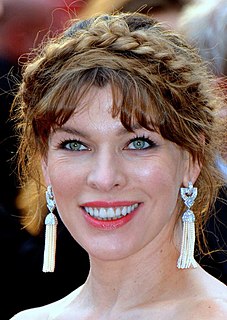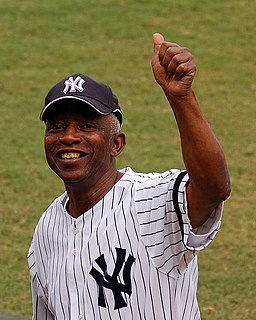A Quote by Milla Jovovich
Statistically you take thousands of photographs of your first kid, and then with your second kidyou take about half of that. And then with your third kid, you, like, pawn off your first and second kids' photographs and tell them they're theirs.
Related Quotes
This is my year of transition from what I'm calling the second phase of my life to the third phase of my life. And I wanted to pass it along. What I mean by that is, in the first days of your life you're dependent on others and you learn. You're basically a kid, depending on your parents. In the second phase of your life, you're working and others are dependent on you and you're trying to be successful. And then when you go to the third phase of your life it's no longer as much of a kick to be successful. There's a natural, instinctual desire to help other people be successful.
I have a way to photograph. You work with space, you have a camera, you have a frame, and then a fraction of a second. It's very instinctive. What you do is a fraction of a second, it's there and it's not there. But in this fraction of a second comes your past, comes your future, comes your relation with people, comes your ideology, comes your hate, comes your love - all together in this fraction of a second, it materializes there.
Introduce your main characters and themes in the first third of your novel. If you are writing a plot-driven genre novel make sure all your major themes/plot elements are introduced in the first third, which you can call the introduction. Develop your themes and characters in your second third, the development. Resolve your themes, mysteries and so on in the final third, the resolution.
When you reach a certain age, you have fulfilled your childhood dream and whatever your first or second adulthood led you to do. Then you're in your third adulthood, the one that leads to the grave, and you ask yourself, "What will I do between now and then?" Instead of thinking in terms of glamour, you start thinking in terms of reform - your contribution to the world.
As I see it, a successful story of any kind should be almost like hypnosis: You fascinate the reader with your first sentence, draw them in further with your second sentence and have them in a mild trance by the third. Then, being careful not to wake them, you carry them away up the back alley of your narrative and when they are hopelessly lost within the story, having surrendered themselves to it, you do them terrible violence with a softball bag and then lead them whimpering to the exit on the last page. Believe me, they'll thank you for it.
To a sprinter, the hundred-yard dash is over in three seconds, not nine or ten. The first 'second' is when you come out of the blocks. The next is when you look up and take your first few strides to attain gain position. By that time the race is actually about half over. The final 'second' - the longest slice of time in the world for an athlete - is that last half of the race, when you really bear down and see what you're made of. It seems to take an eternity, yet is all over before you can think what's happening.
It's a great lesson about not being too precious about your writing. You have to try your hardest to be at the top of your game and improve every joke you can until the last possible second, and then you have to let it go. You can't be that kid standing at the top of the waterslide, overthinking it...You have to let people see what you wrote.
You live and die two or three times making a movie. First, you write it, and the first pivotal moment comes when you can get it made. The second is in the process of making it, when the movie reveals itself to you, its flaws and its virtues. Then the most unnerving moment is when that movie is then launched into the world. It’s like bringing your kid to the first day at school and somebody points out that it has bowlegs, it is cross-eyed, or it’s gorgeous. You feel very exposed.










































